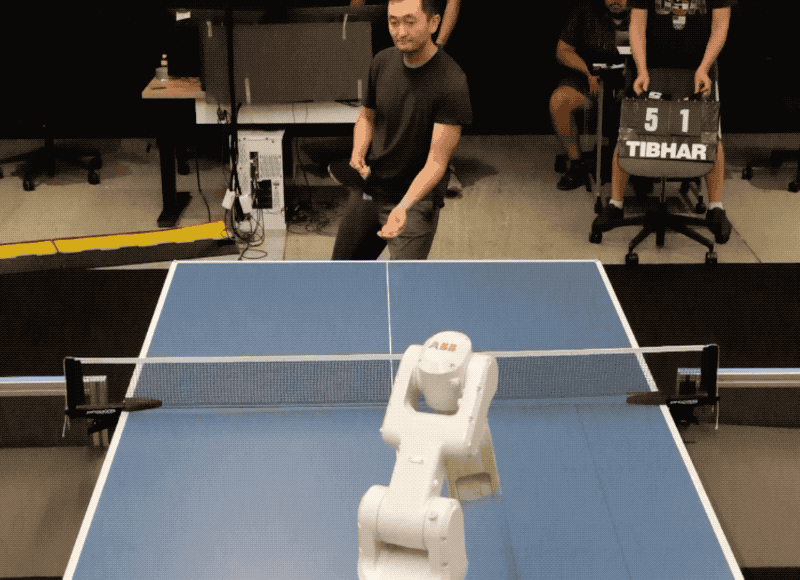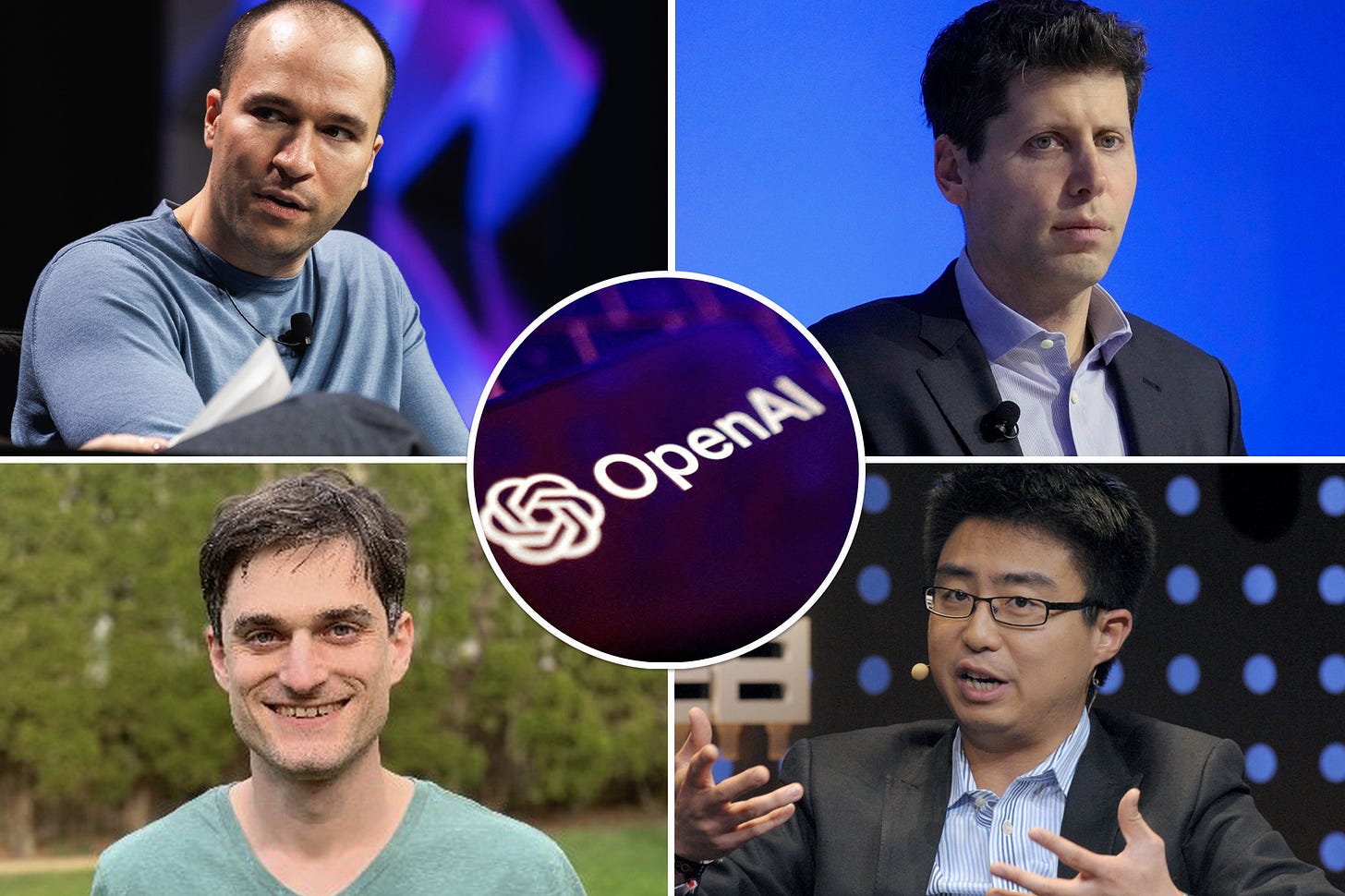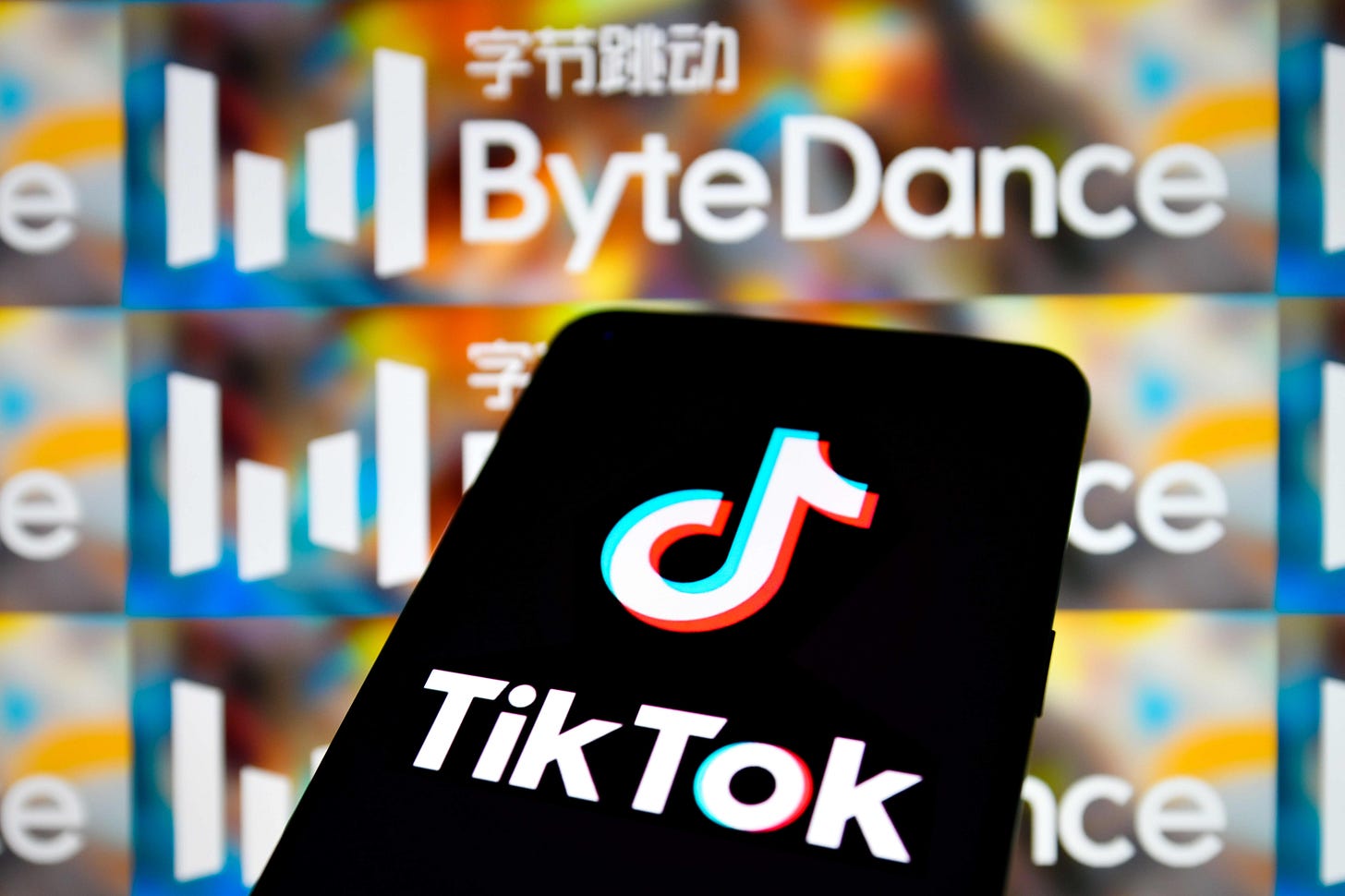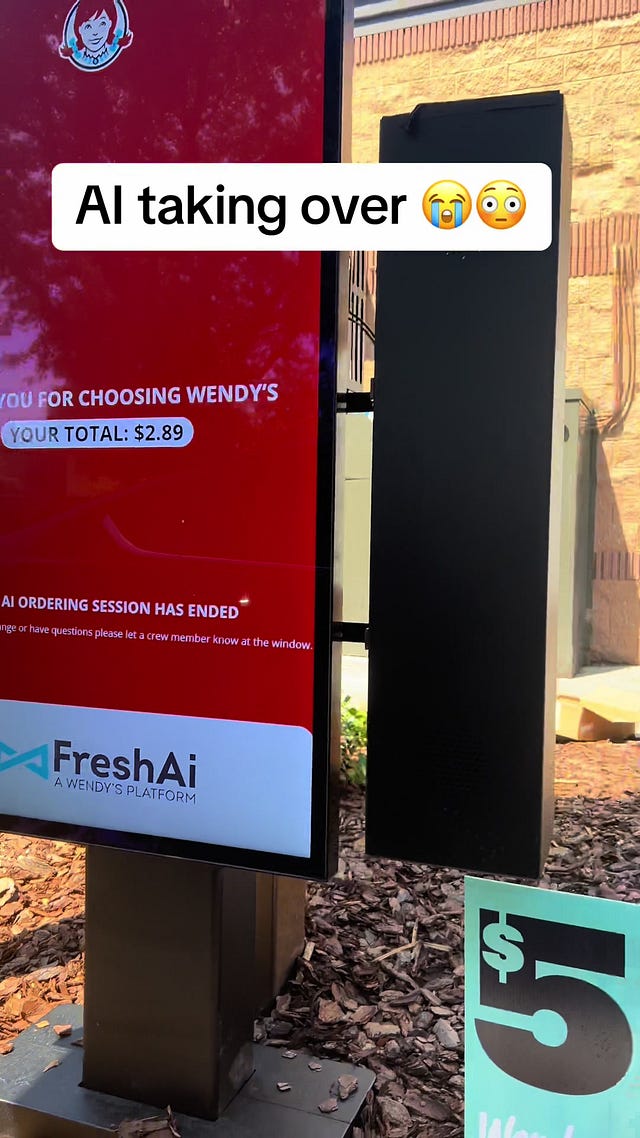AI News Roundup: From OpenAI Drama to Robot Table Tennis
Navigating the AI Landscape: From Cryptic Strawberries to Robotic Table Tennis Players
Welcome to this week's AI news roundup! The world of artificial intelligence continues to evolve at a breakneck pace, with developments ranging from intriguing to controversial. In this newsletter, we'll dive into the latest happenings at OpenAI, explore advancements in AI-generated imagery and video, and take a look at how AI is transforming various industries. Let's get started!
OpenAI: Strawberries, Shuffles, and Lawsuits
The Mysterious Strawberry Model
OpenAI has been at the center of attention once again, this time with a cryptic message from CEO Sam Altman. He posted an image on Twitter showing strawberries from his garden with the caption "I love summer in the garden." This seemingly innocuous post has sparked widespread speculation in the AI community.
The reason? It's believed to be a reference to OpenAI's rumored "Strawberry" model, a rebranded version of their powerful Q* (pronounced Q-star) system. Q* reportedly possesses advanced reasoning capabilities that some consider too powerful to release publicly. This has led to a flurry of memes and discussions about what OpenAI might be cooking up next.
Adding to the intrigue, a Twitter account with the username "IR rule theorm Mo" and three strawberry emojis has been posting cryptic messages and memes related to AI and strawberries. The account has rapidly gained followers, with some speculating it could be an alternate account for Altman himself or an AI bot created by OpenAI. While the true nature of the account remains unclear, it has certainly succeeded in generating buzz around OpenAI's next moves.
Leadership Shakeup and New Board Member
OpenAI has experienced significant changes in its leadership team:
1. John Schulman, a co-founder, has left to join Anthropic.
2. Peter Deng, a product manager, has also departed.
3. Greg Brockman, another co-founder, is taking an extended sabbatical until the end of the year.
These departures have led to speculation about internal tensions at the company. However, Brockman's recent tweet suggests he plans to return, stating he's "looking forward to completing our mission together."
In a move that appears to address concerns about AI safety, OpenAI has appointed a new board member, Ziko Kolter. Kolter is a professor and director of the machine learning department at Carnegie Mellon University, with a focus on AI safety, alignment, and the robustness of machine learning classifiers.
Safety Measures and Emotional Attachment Warnings
OpenAI has released a detailed "GPT-4 System Card" outlining their safety work prior to releasing GPT-4. This includes external red teaming, frontier risk evaluations, and an overview of mitigations for key risk areas. The company has given itself a scorecard on various risk factors, with most areas deemed low to medium risk.
Interestingly, OpenAI has also warned about the potential for users to become emotionally attached to its voice mode. During testing, they observed users using language that might indicate forming connections with the model. This raises questions about the impact of AI on human relationships and mental health.
Legal Challenges
OpenAI is facing multiple legal challenges:
1. Elon Musk has filed a new lawsuit against the company, alleging that OpenAI's founders manipulated him into co-founding their nonprofit venture by promising it would be safer and more transparent than profit-driven alternatives.
2. YouTuber David Mallett is attempting to start a class-action lawsuit against OpenAI for scraping YouTube video transcripts to use as training data. However, some experts believe this lawsuit may not succeed due to the transformative nature of AI outputs.
AI-Generated Imagery and Video
The Realism of AI-Generated Images
The quality of AI-generated images has improved dramatically. Recent examples show human figures that are nearly indistinguishable from photographs at first glance. While some telltale signs remain (such as gibberish text on lanyards or slight oddities in microphone renderings), the overall realism is striking.
These images were created using a model called Flux, with creators following a specific process detailed in a Reddit thread. The ability to generate such realistic images raises important questions about the future of visual media and the potential for misuse.
Video Generation Advancements
Several companies have made strides in AI video generation:
1. ByteDance, the company behind TikTok, has debuted a new AI video generation model called Jemang AI. While some claim it rivals OpenAI's Sora, initial comparisons suggest Sora still has an edge in quality.
2. Runway has introduced a new feature in their Gen-3 Alpha model that allows users to specify an ending frame for generated videos. This enables more controlled and creative video generation, such as showing objects assembling or disassembling.
3. OpusClip has launched new features for their AI-powered video editing tool. The "Clip Anything" feature uses advanced video understanding to analyze visual, audio, and sentiment cues, allowing users to find specific scenes or moments using natural language prompts.
AI in Various Industries
Job Hunting with AI
HubSpot has released a toolkit designed to help job seekers leverage AI in their search for the perfect position. This includes resources on using AI tools for job hunting and tips for improving negotiation skills. As AI continues to transform the job market, learning to use these tools effectively could give job seekers a significant advantage.
Content Creation and Curation
Several platforms are integrating AI to enhance content discovery and creation:
1. WordPress has launched an AI writing tool to make blogs more readable and succinct.
2. Amazon Music introduced "Topics," an AI-powered feature for discovering podcasts.
3. Audible is testing an AI-powered search feature called Maven for personalized audiobook recommendations.
4. Reddit is experimenting with AI-generated summaries at the top of search results to help users discover new content and communities.
AI in Retail and Fast Food
The integration of AI into everyday consumer experiences continues:
1. Wendy's has implemented an improved AI drive-thru system, which appears to handle orders more accurately than previous attempts at AI-powered ordering.
2. Google is developing a new Gemini AI-powered TV streamer to replace Chromecast, promising more personalized content suggestions.
Robotics and AI
Table Tennis and Humanoid Robots
The world of robotics continues to advance, with AI playing a crucial role:
1. Google DeepMind has showcased a robot that can play table tennis at a "solidly amateur" level, demonstrating the progress in robotic dexterity and real-time decision making.
2. Figure Robotics has revealed their Figure 02 humanoid robot, featuring improved hand movements, vision systems, and speech-to-speech reasoning capabilities. These robots are already being used on BMW production lines.
Augmented Reality and Robotics
Nvidia has demonstrated how devices like the Apple Vision Pro can be used to control robots. This integration of augmented reality and robotics opens up new possibilities for remote operation and intuitive control of complex machinery.
Challenges and Setbacks
The Humane AI Pin
The Humane AI Pin, a wearable AI device that garnered significant attention, is facing challenges. Returns and refunds for the device are now outpacing sales, with over $1 million in returns against $9 million in sales. This highlights the difficulties in bringing novel AI hardware to market and meeting consumer expectations.
AI Model Development and Deployment
OpenAI has faced criticism for announcing features and capabilities without making them widely available. Many users are still waiting for access to GPT-4, advanced voice features, and the announced ChatGPT search function. The company has advised lowering expectations for their upcoming Dev Day event, suggesting that major new features or GPT-5 are not on the immediate horizon.
Ethical and Legal Considerations
Copyright and Training Data
The use of copyrighted material for training AI models continues to be a contentious issue:
1. Nvidia is facing scrutiny after leaked documents revealed they were scraping "a human lifetime of videos per day" to train their AI models.
2. OpenAI claims to have developed a tool to detect AI-generated text but has chosen not to release it due to concerns about potential misuse and stigmatization of AI as a writing tool.
These developments highlight the ongoing debate about fair use, copyright law, and the ethical implications of using vast amounts of data to train AI models.
Looking Ahead
As AI technology continues to advance at a rapid pace, we can expect to see more integration of AI into everyday products and services. The developments in video and image generation are particularly noteworthy, as they have the potential to revolutionize content creation across multiple industries.
However, the challenges faced by companies like OpenAI and Humane serve as a reminder that the path to widespread AI adoption is not without obstacles. Ethical considerations, user trust, and practical implementation hurdles will continue to shape the development and deployment of AI technologies.
The coming months will likely bring further advancements in AI capabilities, particularly in areas like robotics and natural language processing. At the same time, we can expect ongoing discussions about AI safety, regulation, and the societal impact of these powerful technologies.
Stay tuned for more updates as we continue to track the fascinating and rapidly evolving world of artificial intelligence!









